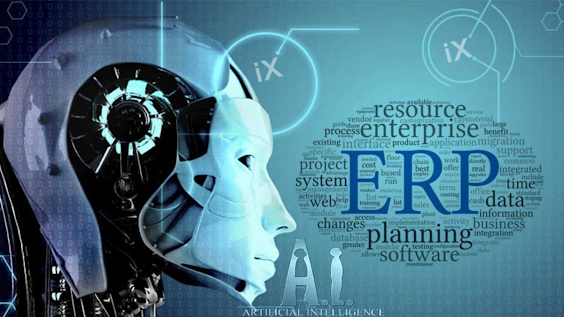AI-Powered ERP Services: Transforming ERP
Introduction
In the ever-evolving landscape of business technology, Enterprise Resource Planning (ERP) systems have long been the backbone of organizations, helping streamline operations, enhance collaboration, and optimize resource utilization. As we delve deeper into the digital age, a new player has emerged on the scene, promising to revolutionize the way we approach ERP: Artificial Intelligence (AI).
AI-powered ERP services are rapidly reshaping the traditional ERP landscape, introducing unprecedented levels of efficiency, intelligence, and automation. Let’s take a closer look at how AI is transforming ERP and reshaping the future of business operations.
Data-Driven Insights for Informed Decision-Making
One of the most notable contributions of AI to ERP is its ability to extract valuable insights from vast volumes of data. By employing machine learning algorithms, AI-powered ERP systems can analyze historical and real-time data to provide actionable insights. Businesses can make more informed decisions based on predictive analytics, demand forecasting, and trend analysis. This enables companies to optimize their supply chains, production schedules, and inventory levels, ultimately leading to improved resource allocation and reduced operational costs.
Automation of Routine Tasks
AI’s proficiency in automating repetitive tasks is a game-changer for ERP systems. Mundane and time-consuming tasks like data entry, invoice processing, and inventory tracking can be handled by AI algorithms, freeing up human resources for more strategic and creative endeavors. This not only accelerates processes but also minimizes the risk of human error, leading to increased accuracy and productivity.
Enhanced Customer Experience
Customer-centricity is a cornerstone of modern business, and AI-powered ERP systems are enhancing customer experiences in novel ways. By analyzing customer behavior and preferences, these systems can personalize interactions, tailor product recommendations, and optimize pricing strategies. Additionally, AI-powered chatbots are transforming customer service by providing real-time assistance and support, improving response times, and boosting overall customer satisfaction.
Predictive Maintenance and Asset Management
In industries that heavily rely on machinery and equipment, AI-driven predictive maintenance is a game-changer. By continuously monitoring sensor data, AI-powered ERP systems can predict when equipment is likely to fail and recommend preventive measures. This approach minimizes downtime, extends the lifespan of assets, and reduces maintenance costs.
Agile and Adaptive Planning
Traditional ERP systems often struggle to keep up with rapidly changing market dynamics. AI-infused ERP services, however, can quickly adapt to changing circumstances. Through real-time data analysis, these systems can adjust production schedules, inventory levels, and distribution strategies to align with market demand fluctuations and unforeseen disruptions.
Improved Collaboration and Communication
AI-driven ERP systems are breaking down silos within organizations by enhancing collaboration and communication across departments. With integrated AI tools for data sharing, project management, and knowledge sharing, teams can work seamlessly together, leading to improved decision-making and faster project execution.
As AI continues to evolve, so too will the capabilities of AI-powered ERP services. However, organizations should be mindful of potential challenges such as data privacy, ethical considerations, and the need for upskilling the workforce to effectively leverage these advanced technologies.
Conclusion
AI-powered ERP services are reshaping the landscape of enterprise resource planning by infusing intelligence, automation, and adaptability into traditional systems. Businesses that embrace these innovations stand to gain a competitive edge through improved efficiency, enhanced customer experiences, and more strategic decision-making. As we move forward, the collaboration between AI and ERP will undoubtedly shape the future of business operations in ways we can only begin to imagine.
For more information, visit Superior Codelabs.
Shaikh Fakruddin is the Founder and CEO of Superior Codelabs.




Comments
Post a Comment